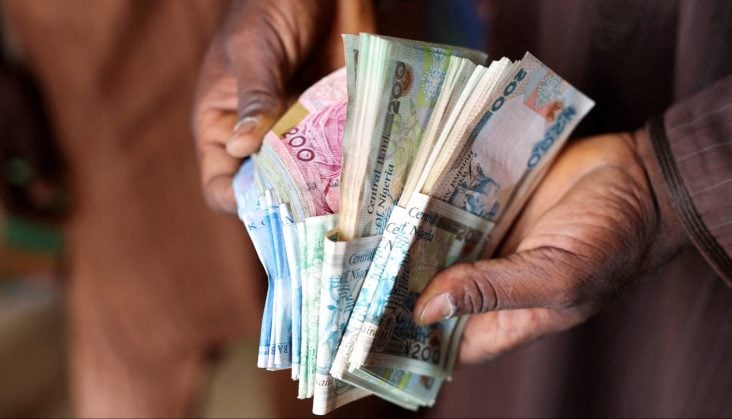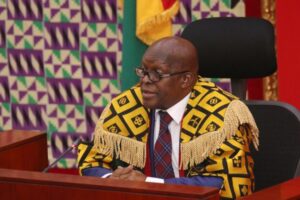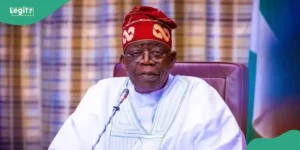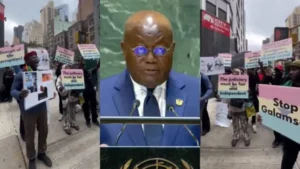
A raft of policy measures to unify exchange rates in Nigeria have been welcomed by the investor community – but without a cash injection from the central bank, the naira could continue to freefall.
International investors will continue to wait in the wings for a capital injection from the Central Bank of Nigeria (CBN) to fund foreign exchange demand of around $1.5bn.
Until then, the naira could devalue to as low as N1,000 to the US dollar, says Charity Orji, chief executive officer of Angala Fintech Ltd., a Lagos-based payments and credit solutions provider. As of 30 June, the naira traded at 770.88 to the dollar, according to data from the CBN.
“The N,1000 level is a longer-term projection, however, that also takes into account little to no inflow of fresh capital investments,†says Orji.
According to data collated by the World Bank, foreign direct investment to Nigeria in 2022 was -$186.79m – meaning that the value of divestment in Nigeria was greater than investment from foreign entities.
At the same time, inflation continues to rise in Nigeria, putting further pressure on the naira and exacerbating a cost of living crisis in the country. According to data from Nigeria’s National Bureau of Statistics (NBS), the headline inflation rate in May this year rose to 22.41% from 22.22% in April – a 2.09% increase month-on-month.
Cautious business
For years, international investors have been cautious of doing business in Nigeria, discouraged by the lack of available foreign exchange and the subsequent difficulty in repatriating hard currency. Those that have ventured into the market have been forced to the black market for FX.
Nigeria’s new administration has taken several measures to dismantle ineffective and harmful foreign exchange policy under suspended central bank governor, Godwin Emefiele. In June, the decision to remove the fixed exchange rate regime saw the official exchange rates soar, closing the gap between CBN exchange rates with that on the black market.
The changes have largely been welcomed by the international investor community, but while investor sentiment is much more optimistic, this does not mean investor capital will suddenly flood the market, says Orji.
The changes have largely been welcomed by the international investor community, but while investor sentiment is much more optimistic, this does not mean investor capital will suddenly flood the market, says Orji.
“Investors still need to see the broader policy direction of the government, especially specific trade policies, and will be awaiting the direction of the new CBN governor,†she says.
“More cautious investors might also look for completion of the tribunal process on the presidential vote, which remains in contention in court, just to provide comfort that there won’t be a government change or some kind of policy reversal.â€
In May this year, Nigeria’s Court of Appeal began proceedings to hear challenges brought against the declaration of President Tinubu as the winner of February’s presidential elections.
Both main opposition parties to Tinubu’s All Progressive Congress (APC), the Peoples Democratic Party, and the Labour Party argue that the presidential elections were marred with irregularities, including violence at the polls, voter suppression and vandalised polling units
Capital injection
“Looking at FX cash flows in and out of the CBN as well as reserves, the CBN could afford a cash injection of approximately $50m a week – or roughly $4bn to $5bn a month, which would clear a backlog of around $1.5bn,†says Abiodun Keripe, managing director at Afrinvest, a consultancy based in Lagos.
“When there is such a huge demand for dollars – something we have seen for years now – you could expect the CBN to take swift action,†he says.
Current gross central bank reserves are at $34.22bn, according to data on the CBN website. Of this, $33.49bn is liquid.
However, so far, the CBN has not been forthcoming, waiting instead to see if higher export receipts will boost FX. “We hope that the new administration will put some effort in[to] ramping up oil production in the medium term. There will also be renewed efforts to boost non-oil exports as well,†says Keripe.
Earlier this year, the UK eliminated tariffs on over 3000 exports from Nigeria and several other countries under the Developing Countries Trading Scheme (DCTS). The scheme will encourage the movement of goods from emerging markets to the UK and boost the UK’s trading relationships with countries outside of the EU.
“Nobody wants to come out and be the one to fund [the] FX demand gap,†says one Nigerian banker based in Lagos. “Boosting exports is one option – another would be to remove exchange controls and import restrictions all together.â€
Dating back to 2015, imports of 43 items – including rice, cement, margarine and palm kernel – are banned as the CBN continues to forbid access of FX for these items.
“But the CBN has an obligation to inject FX into the system,†says the banker. “The failure to do this will only enhance the atmosphere of uncertainty in the market – and fuel speculation around the quality of reserves held.â€



